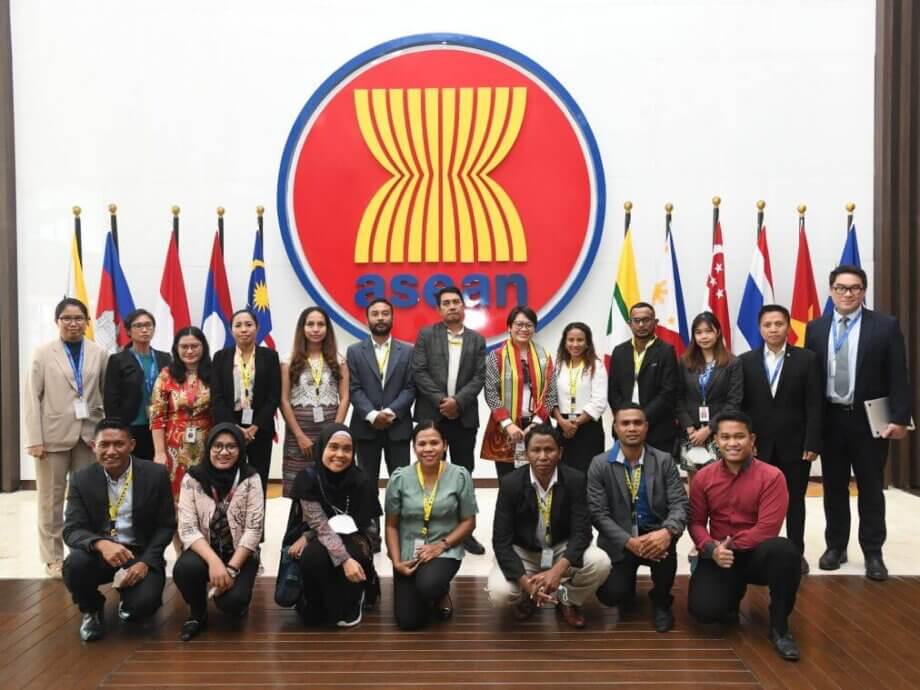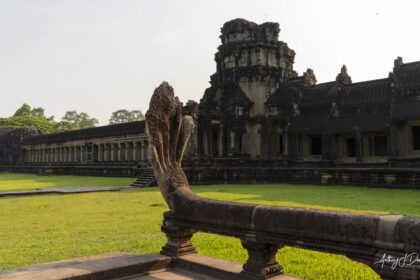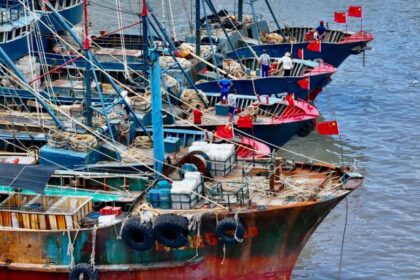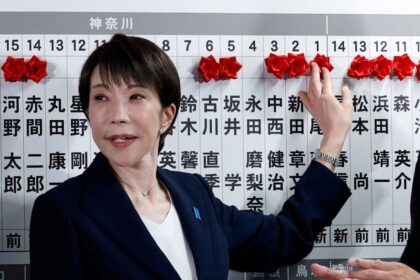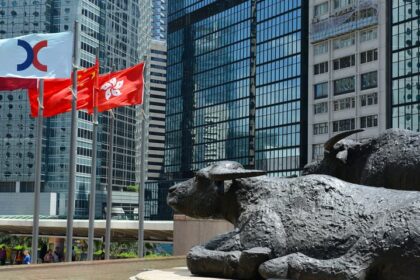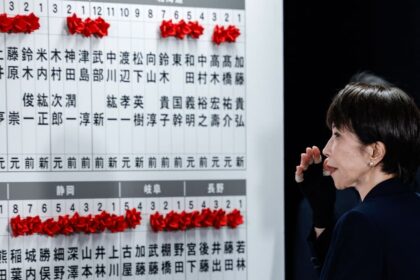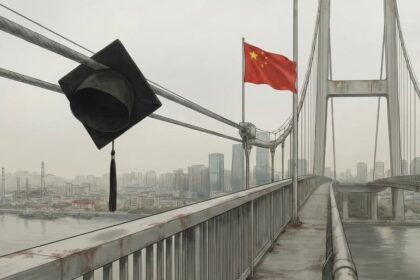Timor-Leste’s Journey: From Conflict to the Threshold of ASEAN
Timor-Leste, Southeast Asia’s youngest nation, stands on the cusp of a historic milestone: full membership in the Association of Southeast Asian Nations (ASEAN). For a country that emerged from decades of occupation and violence, the prospect of joining the region’s premier political and economic bloc is both a symbol of hard-won stability and a test of its readiness to meet the demands of regional integration.
- Timor-Leste’s Journey: From Conflict to the Threshold of ASEAN
- Why ASEAN Membership Matters for Timor-Leste
- The Road to Membership: Progress and Persistent Challenges
- Economic Realities: Poverty, Oil Dependency, and the Need for Diversification
- Institutional Capacity and Human Resources: Building for the Future
- Regional Politics: Consensus, Caution, and the Geopolitical Stakes
- What ASEAN Stands to Gain—and Lose
- Voices from Timor-Leste: Hopes, Fears, and the Next Generation
- ASEAN’s Internal Debate: Is the Bloc Ready for Timor-Leste?
- Looking Ahead: Scenarios and the Path Forward
- In Summary
The story of Timor-Leste’s ASEAN journey is one of resilience, ambition, and the complex interplay of domestic challenges and regional geopolitics. As the October 2025 ASEAN Summit approaches—when Timor-Leste is expected to be admitted as the bloc’s 11th member—questions remain about what this means for the country, ASEAN, and the broader region.
Why ASEAN Membership Matters for Timor-Leste
For many Timorese, ASEAN membership represents more than just a seat at the table. It is a gateway to economic opportunity, political stability, and a sense of belonging in Southeast Asia. The country’s leaders, including President José Ramos-Horta and Prime Minister Xanana Gusmão, have made accession a top national priority, seeing it as a path to development and international legitimacy.
“If we want to compete with others in the region, we have to improve ourselves. That gives us strength,” says Ana Hula Muda, a law graduate and advocate for youth empowerment in Dili. Her words echo the aspirations of a generation that grew up amid conflict but now looks outward, seeking skills, networks, and opportunities that ASEAN can provide.
ASEAN membership offers Timor-Leste access to a market of over 680 million people, participation in regional security frameworks, and the chance to benefit from experience exchanges and capacity-building programs. For a nation still rebuilding its institutions and economy, these opportunities are vital.
The Road to Membership: Progress and Persistent Challenges
Timor-Leste’s path to ASEAN has been long and arduous. After regaining independence from Indonesia in 2002, the country formally applied for membership in 2011. It was granted observer status in 2022, and since then, has participated in ASEAN meetings while working to fulfill a detailed roadmap for accession.
This roadmap, adopted at the 2023 ASEAN Summit, outlines a series of legal, institutional, and economic benchmarks. These include:
- Signing and implementing ASEAN’s core treaties, conventions, and agreements
- Establishing a dedicated diplomatic mission to ASEAN in Jakarta
- Aligning national laws and regulations with ASEAN standards
- Building institutional capacity to participate in ASEAN’s three pillars: political-security, economic, and socio-cultural
- Ensuring sufficient English-speaking personnel in government agencies
- Preparing infrastructure to host ASEAN meetings
As of mid-2025, Timor-Leste has reportedly fulfilled over 80% of these requirements, with the remaining hurdles largely in the economic and legal domains. According to Malaysian Foreign Minister Mohamad Hasan, “Timor-Leste still needs to institute 66 out of the 84 required legal instruments, most of them related to ASEAN’s economic pillar.”
Meeting these obligations is no small feat for a country with a population of 1.5 million, a GDP of just over US$2 billion, and limited administrative capacity. Yet, the political will is evident. President Ramos-Horta has made clear that “joining ASEAN, nothing else,” is the absolute priority for his administration.
Economic Realities: Poverty, Oil Dependency, and the Need for Diversification
Timor-Leste’s economic challenges are at the heart of concerns about its readiness for ASEAN. Despite significant offshore oil and gas reserves, the country remains one of Asia’s poorest, with 42% of its population living below the poverty line. The Petroleum Fund, which holds over US$18 billion, is a crucial buffer, but revenues are dwindling and the fund may only last another decade at current spending rates.
The economy is heavily dependent on oil, with little diversification into agriculture, manufacturing, or services. The private sector is small, infrastructure is underdeveloped, and unemployment—especially among youth—is high. Education and health services lag behind regional peers, and many young Timorese seek work abroad.
These structural weaknesses fuel skepticism among some ASEAN members, who worry that Timor-Leste’s entry could widen the bloc’s development gap and strain its economic integration efforts. As one analysis notes, “Timor-Leste’s negligible private sector, underdeveloped infrastructure, scarce skilled labour and unfavourable business environment represent serious structural problems.”
Institutional Capacity and Human Resources: Building for the Future
Beyond economics, Timor-Leste faces the challenge of building the institutional capacity needed to participate fully in ASEAN’s complex web of meetings, agreements, and initiatives. The country must align its legal, financial, and parliamentary systems with ASEAN standards, develop English proficiency among officials, and create the logistical infrastructure to host regional events.
Support from ASEAN neighbors has been crucial. Singapore, for example, has trained over 800 Timorese officials through the Singapore-Timor-Leste ASEAN Readiness Support (STARS) program, offering courses in negotiation, report writing, and technical and vocational education. Malaysia and Indonesia have provided diplomatic training and technical assistance, while the ASEAN Secretariat has mobilized teams to help Timor-Leste prepare.
“We have also gone and conducted courses in Timor-Leste for the officials to help them to understand what is the issue, but I think that it is not easy because it is a small country… and to generate this bureaucracy, the officials who can master all of this and participate – I think it will take them awhile. But we will help them to do it as soon as possible,” said Singapore’s Prime Minister Lee Hsien Loong.
Timor-Leste’s government has responded by appointing a Vice Minister for ASEAN Affairs, developing a national compliance framework, and investing in infrastructure upgrades, such as the expansion of Dili’s international airport. Yet, the scale of the task remains daunting.
Regional Politics: Consensus, Caution, and the Geopolitical Stakes
ASEAN’s decision-making is based on consensus, and the admission of new members requires the agreement of all existing states. While there is broad political support for Timor-Leste’s entry—especially from Malaysia, Indonesia, and the Philippines—some members have expressed caution, citing concerns about institutional readiness and the potential impact on ASEAN’s effectiveness.
Past experiences with the rapid admission of Cambodia, Laos, and Myanmar have made the bloc more cautious. The challenges faced by these countries, particularly Myanmar’s ongoing political crisis, have underscored the risks of admitting members before they are fully prepared.
At the same time, the geopolitical context has shifted. China’s growing influence in Timor-Leste, through infrastructure projects and diplomatic engagement, has prompted some ASEAN members to see the country’s inclusion as a way to anchor it more firmly in the regional fold. As Malaysia’s Prime Minister Anwar Ibrahim put it, “ASEAN’s future must include Timor-Leste to enhance the regional bloc’s economic potential.”
What ASEAN Stands to Gain—and Lose
For ASEAN, admitting Timor-Leste is both a test of its commitment to inclusivity and a challenge to its capacity for integration. The bloc has long aspired to unite all Southeast Asian nations, and Timor-Leste’s accession would fulfill that geographic vision. It would also send a message of solidarity and support for a young democracy that has overcome extraordinary adversity.
Yet, the risks are real. Timor-Leste’s entry could complicate decision-making, widen economic disparities, and require significant resources for capacity-building. Some analysts warn that without tailored support, the country could struggle to meet its obligations, potentially undermining ASEAN’s cohesion.
To address these concerns, proposals have been made for a phased approach, including grace periods for meeting certain obligations, special and differential treatment (as was granted to Cambodia and Laos), and ongoing technical assistance. Malaysia, as ASEAN chair in 2025, has championed this flexible, supportive model.
Voices from Timor-Leste: Hopes, Fears, and the Next Generation
For ordinary Timorese, the promise of ASEAN is intertwined with hopes for jobs, education, and a better future. In Dili’s parks and markets, young people dream of opportunities abroad, improved infrastructure, and a country that can stand on equal footing with its neighbors.
“Decent jobs, better infrastructure and more opportunities,” says Octavio Belo, a university student. His aspirations are echoed by educators like David Chan, who runs a private school focused on practical skills and job readiness, and by parents like Augusto Soares, who see education as the key to a peaceful and prosperous future.
Yet, the challenges are visible: outdated textbooks, undertrained teachers, and limited resources. Public-sector jobs remain the safest option for many, but a new generation is looking to entrepreneurship and technology for solutions.
ASEAN’s Internal Debate: Is the Bloc Ready for Timor-Leste?
While much attention is focused on Timor-Leste’s readiness, some analysts argue that the real question is whether ASEAN itself is prepared to evolve. The bloc’s consensus-driven model, principle of non-interference, and slow pace of decision-making have been both strengths and weaknesses. Integrating a country with significant development needs will test ASEAN’s ability to deliver on its promises of inclusive growth and regional solidarity.
“The question is no longer just whether Timor-Leste is ready but whether ASEAN is ready to evolve with it,” writes one commentator. The decision will signal whether ASEAN remains a club for the capable or a true community of care, willing to invest in its most vulnerable members.
Looking Ahead: Scenarios and the Path Forward
As the October 2025 summit approaches, several scenarios are possible:
- Full Admission: Timor-Leste is welcomed as the 11th member, with phased implementation of obligations and continued support from ASEAN partners.
- Conditional or Delayed Entry: Membership is granted in principle, but full participation is deferred pending further compliance, risking frustration in Dili and potential geopolitical shifts.
- Continued Exclusion: Further delays or lack of consensus would damage ASEAN’s credibility and risk alienating Timor-Leste, potentially pushing it toward alternative alignments.
Most observers expect the first scenario, given the political momentum and Malaysia’s active support. Yet, the process will not end with admission. The real work—building institutions, diversifying the economy, and ensuring meaningful participation—will continue for years to come.
In Summary
- Timor-Leste is poised to become ASEAN’s 11th member, pending the fulfillment of remaining legal and economic requirements.
- ASEAN membership offers Timor-Leste opportunities for economic growth, political stability, and regional integration, but also poses significant challenges.
- The country faces persistent hurdles: poverty, oil dependency, underdeveloped infrastructure, and limited institutional capacity.
- ASEAN members, led by Malaysia, Indonesia, and Singapore, are providing technical assistance and advocating for a flexible, supportive approach to accession.
- Timor-Leste’s inclusion will test ASEAN’s commitment to inclusivity and its ability to support less developed members.
- The decision will have broader geopolitical implications, particularly in the context of China’s growing influence in the region.
- For Timor-Leste’s people, ASEAN membership is a symbol of hope and a chance to build a better future, but the journey toward full integration will require sustained effort and support.


